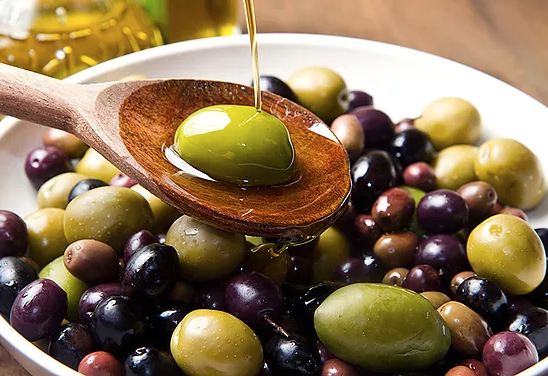Do you ever get lost on which oil is the proper one to use for health, cooking, & taste? An oil can be labeled as “healthy” but when cooked, heat changes the chemical composition. Knowing which oils are stable when cooked and DO NOT oxidize is important to avoid consuming free radicals. Free radical create a chain reaction, like dominoes damaging important cells such as DNA or cellular membranes that can cause cancer and other harmful effects. We consume natural foods with antioxidants to prohibit this chain reaction and want to try and limit the quantity of free radicals in our body.
When an oil undergoes oxidation when heated at high or low temperatures forming free radicals. Each oil has a different resistance to oxidation and is determined by it cellular structure based on the saturation of fatty acids it is composed of.
Saturated fats = single bond; SOLID at room temperature and resist oxidation. Great for HIGH HEAT.
Monounsaturated = single double bond; LIQUID at room temperature, found in olive, canola, & nuts.
Polyunsaturated = 2+ double bonds, AVOID when cooking; LIQUID & highly unstable when heated. Found in sunflower & safflower.
Fatty acids composed on double bonds are oils that are sensitive to heat.
OLIVE OIL {extra virgin}:
Provides amazing flavor and is safe in raw and cooked form. This oil is packed with monounsaturated fats and loaded with phytochemicals that can help prevent some types of cancer. Research shows that Extra Virgin Olive Oil has been shown to increase a person’s feeling of satiety (fullness) after a meal.
COCONUT OIL:
Composed of saturated fatty acids, this oil is excellent for HIGH heat! Popular in the kitchen these days, it is important to consume in moderation. The benefits of Coconut Oil (lauric acid) have shown to help reduce the amount of blood triglycerides-cholesterol (fats), weight loss, and healthy digestive tract. Be sure to choose VIRGIN coconut oil for health benefits.
BUTTER:
In the past, just like coconut oil & other saturated fats, butter was labeled unhealthy! REAL butter is actually beneficial (Vitamins A, E and K2), but stay away from processed margarine. Downside, butter contains a small amount of sugar that may burn at high heat. To avoid burning, substitute with clarified butter or ghee (lactose and proteins removed). Also, look for butter made from grass-feed cows!

